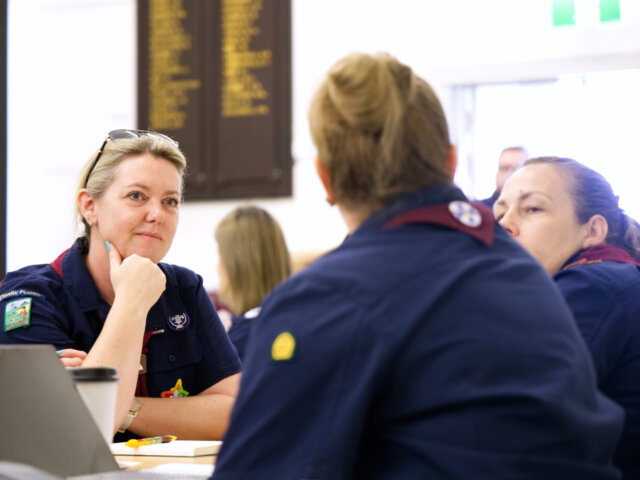SAIT Qualifications
Unlocking the benefits of nationally recognised qualifications
![]()
Achieving a secondary school certificate is an important milestone for high school students in Australia. However, for some students, it can be a challenging and overwhelming task.
This is where nationally recognised qualifications come in.
These qualifications offer students an opportunity to gain practical skills and knowledge in a specific field, which can not only help them achieve their academic goals but also equip them with valuable skills for their future careers. Nationally recognised qualifications can be obtained through the Scouts Australia Insitute of Training (SAIT) (RTO No. 5443) as members can gain recognition for the practical skills and experience that they have received from Scouting. These qualifications can provide a great alternative for students who struggle with traditional academic pathways, as they offer a different approach to learning.
One significant advantage of nationally recognised qualifications is that they can contribute to the achievement of a secondary school certificate. In some Australian states, students can receive credits towards their certificate for completing certain vocational courses. This can be an excellent way for students to broaden their skills and knowledge while fulfilling the requirements of their secondary school certificate. Moreover, by earning a nationally recognised qualification, students can demonstrate their commitment to their future and their willingness to learn and grow. They can showcase their competency and expertise to potential employers and educational institutions, making them stand out in the job market.
Nationally recognised qualifications can play a significant role in helping students achieve their academic goals and succeed in the future. These qualifications offer students a practical and alternative approach to learning and can help them gain valuable skills and knowledge. By earning a nationally recognised qualification, students can broaden their opportunities and open doors to a bright future. To find out more, have a discussion with your VET Co-ordinator at your secondary school, or contact your Branch Commissioner VET to find out how this may help you.




